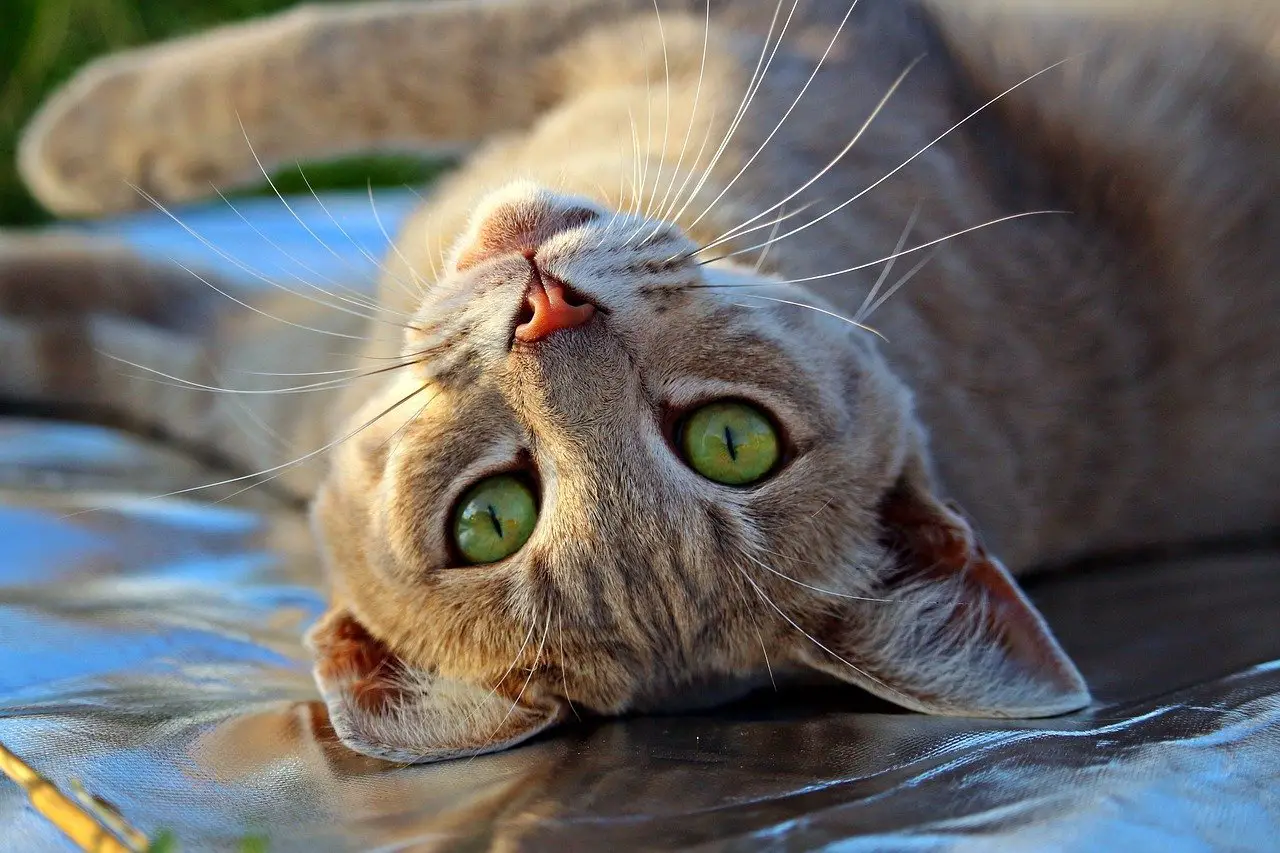There are few things as startling as your cat deciding to bite you out of the clear blue sky, especially if you had just recently been petting and loving on them!
At the same time, anyone that has owned cats for any amount of time knows that these animals are always a little unpredictable. You never know what your cat is going to do next, really – and after a while you sort of becoming numb to the fact that they’ll try and bite you whenever you move them.
Why Does My Cat Bite Me When I Move Her? But what’s really going on here?
Why do cats want to bite you when you’re only trying to help them?
Why do they bite the people that care for them the most?
What’s going on in their mind and how can you best avoid these issues going forward?
We cover all of that (and then some) in the rest of this quick guide.
Let’s jump right in!
Common Reasons Your Cat May Bite
No two cats are exactly the same, and there are a lot of different reasons that your cat might decide to bite you out of the clear blue sky, but there are some commonalities that you understand, look out for, and (hopefully) avoid as much as possible.
Below are going to cover some of the most common reasons your cat may bite without any warning, especially when you try to move her.
Over Stimulation Can Trigger Negative Reactions
Cats, like pretty much every other mammal out there, love to be pet and played with – but there definitely comes a point in time where all of that attention becomes a little bit annoying and they go from “lovingly biting you” and playful too little more aggressive and unhappy with the attention.
It’s critically important that you look out for any warning signs that your cat has started to tire of your attention. Usually, you’ll start to see their tail twitch all over the place, they start to pull away from you, and they may even start to grab your hands a little more aggressively than they were before.
If that’s the case, it’s a good idea to press the pause button on playtime. This is true even if they are still purring and you are otherwise under the impression that everything is going smoothly.
Believe it or not, the hair follicle receptors on your cat can actually start to become overstimulated and really hurt if they are played with and pet too much. This isn’t something that any cat owner thinks about most of the time if they were aware of this fact in the first place.
This quick reaction – snapping at you or biting your finger – is almost always a communication method from your cat to let you know that they are starting to get a little more sensitive. You certainly don’t want to hurt (especially when you were loving on them and playing with them), so try not to make these sessions go any longer than five minutes or so.
Cats Show Affection with Biting
It’s also important to understand that cats regularly show affection to the people that they love through a bit of playful nibbling.
Most of the time this is just gentle “teething” on your fingers or your arm, but when you go to move them it’s not uncommon for them to grab you a little more aggressively. As long as that kind of behavior isn’t matched with their tail twitching or their ears back and teeth bared you really don’t have a whole lot to worry about.
It’s also critical that you teach your cat from a very young age how to “mouth” you delicately. Kittens that bite aggressively during playtime and aren’t reprimanded are going to bite more aggressively when showing affection later on in life. A bit of corrective action when they are pretty young can help to make sure that this doesn’t become a problem later down the line.
The easiest way to train your kittens (and your older cats, for that matter) not to bite hard when they are being affectionate is to move your hand and to make a noise at the same time. You don’t want to hiss – that registers as aggression – but you want to be consistent with the noise you make to train them that this isn’t something they should be adding comfortable with.
Your Cat May Be Stressed Out
At the end of the day, you may be moving a cat that was pretty cozy and pretty comfortable after a long day of being stressed out – and you’re jostling them triggered that stress response, causing them to bite even if they wouldn’t have done so otherwise.
All different kinds of things can stress cats out. As a general rule, these animals are pretty mercurial as it is. You never really know what’s going on “under the hood”.
At the same time, there are some things you want to be on the lookout for that would be obvious signs of stress.
Changes to their normal routine, their everyday behavior, and the way that they go about their day-to-day lives can add a lot of stress to your cat’s life. This could be something as simple as changing up when you feed them when you change their litter box, or where you sleep at night.
It really doesn’t take much to throw these animals for a loop, and until they readjust and re-acclimate they usually are pretty unhappy with the upheaval.
New animals introduced into the home – dogs or cats – can also cause a lot of extra stress.
That should come as no surprise to anyone that has owned cats for any amount of time. Cats are very territorial animals that like to mark their space and sort of “quarantine” different areas off for themselves. As soon as a new animal muscle in on the turf there’s bound to be a few hurt feelings, a bit of back and forth, and a bit of stress and anxiety that has to be navigated.
Just remember that your cat has a very special relationship with you as their person. Anything that comes between the two of you is bound to be seen as at least a bit of a threat, at least until a relationship between that animal and the new family member (furry or otherwise) can be established.
Fear Triggers Biting
Even though they are pretty small, pretty flexible, and pretty nimble cats still don’t love getting picked up the way that other animals (like puppies) really embrace it.
If your cat feels like they are constricted, confined, or otherwise unable to escape at a moment’s notice their fight or flight system is going to kick into high gear. They are going to do absolutely everything they can to escape – even if that means biting you in the process.
If you have been wondering “why does my cat bite me when I move her” the odds are pretty good that it’s a fear response, especially if she was sleeping when you picked her up and moved her in the first place.
Imagine this for a second:
You have just settled in for a nap, found a spot that you are really comfortable with, and are just kind of soaking up the warmth of a blanket and about to fall asleep. All of a sudden, the creature much larger than you scooped you up completely – waking you up in the process – and you don’t want to be confined and may even be confused about where you are in the moment.
Wouldn’t you lash out at the threat?
Of course, you would!
You’d also feel pretty bad if you knew that you bit someone that really cared about you, even if it was in a bit of a haze and something that was more instinctual than anything else.
That’s a big part of why most cats are going to try and “apologize” for their behavior, at least as best they can. They might take a little bit of time to come around – especially if you really spooked them – but it’s not going to take too long for them to come back up on your lap, settle into a spot, and start purring again.
Closing Thoughts
At the end of the day, there are a couple of different reasons that your cat may bite you (especially if you are picking them up and moving her).
Most of them have absolutely nothing to do with rage or aggression towards you as their owner or as their “person”, a part of their family. They usually have to do with the instincts of felines that go back thousands of years, a fear response that is triggered automatically, or as a method of communicating that they’d either like to play or that they aren’t happy with your behavior and how you are handling them.
Just be aware of the fact that every time you lift your cat you run the risk of triggering the same reaction. Do everything you can to avoid it for sure, but know that sometimes it is 100% unavoidable.
[su_box title=”Affiliate Disclosure”]This website is supported by its readers. Please assume that all links are affiliate links. If you make a purchase from one of the links we will make a commission from Amazon. Thank you.[/su_box]





